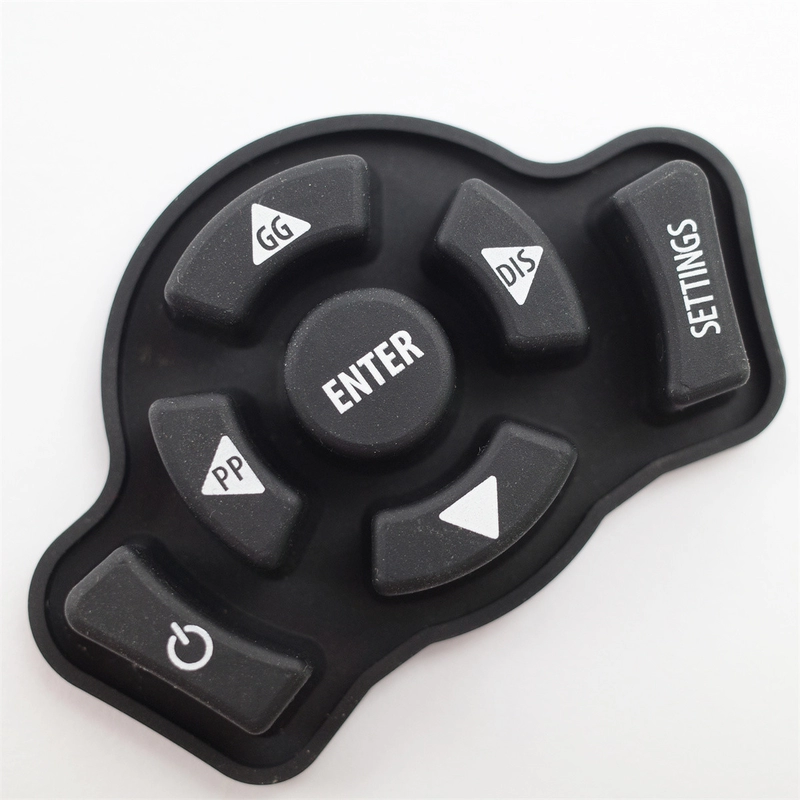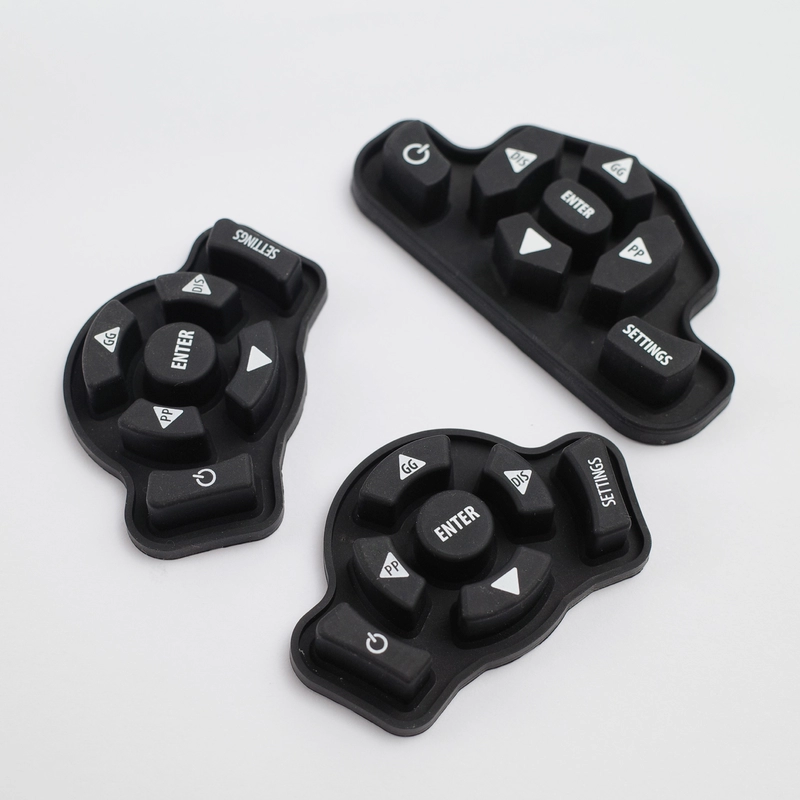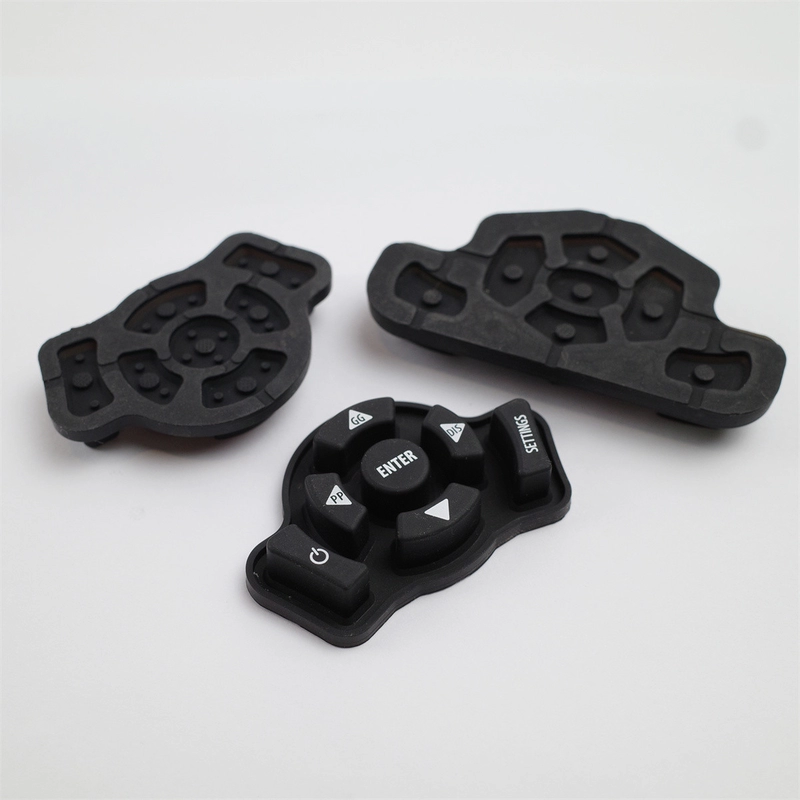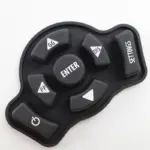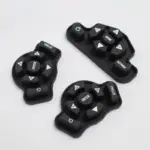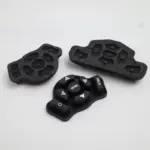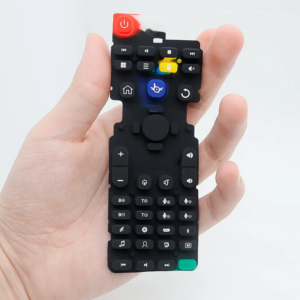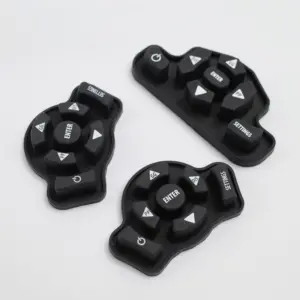
Our OEM/ODM Customer Heat Resistant Conductive Rubber Keypad is crafted from high-quality silicone rubber, customizable in transparent or various colors. The keypad excels in aging, cold, and heat resistance, chemical stability, waterproofing, eco-friendliness, and durability. Supporting silk screen and radium carving printing methods, along with conductive options like carbon pills, conductive ink printing, metal domes, and metal pills, it ensures excellent conductivity. Certified with ISO9001-2015, IATF16949, and ROHS, our product guarantees quality. We offer free samples for testing. Whether for durability or conductivity, our keypad meets high standards, making it ideal for diverse applications.
Specification
Material: silicone rubber
Color: transparent or any colors
Hardness:shore A 30°~80°
Size: customized size
Tolerance: based on customer’s requirement
Printing: silk screen, radium carving
Molded Way: compression molded
Conductive Way: carbon pills, conductive ink printing, metal domes, metal pills
Surface Protective: pu coating, matte smooth coating, epoxy coating
Performance: aging resistance, cold resistance, heat resistance, chemical stability, waterproof, eco-friendly, durable
Certificate: ISO9001-2015, IATF16949, ROHS
OEM/ODM: available
Samples: free available samples
Packing: PE bag & carton, customized packing
Logo: silk printing, laser etching
Application: industrial, medical, automotive, consumer electronics, household, etc
Conductive Methods in Rubber Keypads
- Carbon Pills: Carbon pills are small conductive elements made from carbon-filled silicone rubber. These pills are strategically placed on the underside of the keypad buttons. When a button is pressed, the carbon pill makes contact with the circuit board, allowing the electrical signal to pass through.
- Conductive Ink Printing: Conductive ink is a special ink infused with conductive materials such as silver or carbon. It is printed onto the surface of the rubber keypad, creating conductive pathways. When a button is pressed, the ink traces make contact with the circuit, completing the electrical circuit.
- Metal Domes: Metal domes are tiny metal discs, often made of stainless steel, placed under the keypad buttons. When pressure is applied, the dome collapses, making contact with the circuit board beneath. This contact completes the circuit and registers the keystroke.
- Metal Pills: Similar to carbon pills, metal pills are small conductive elements made from metals like stainless steel. These pills are placed under the buttons and function similarly to carbon pills, allowing electrical signals to pass through when the buttons are pressed.
These methods ensure that the rubber keypad can effectively transmit electrical signals, making them essential components in various electronic devices like remote controls, keypads, and control panels. The choice of conductive method depends on the specific requirements of the application and the desired tactile response of the keypad.
